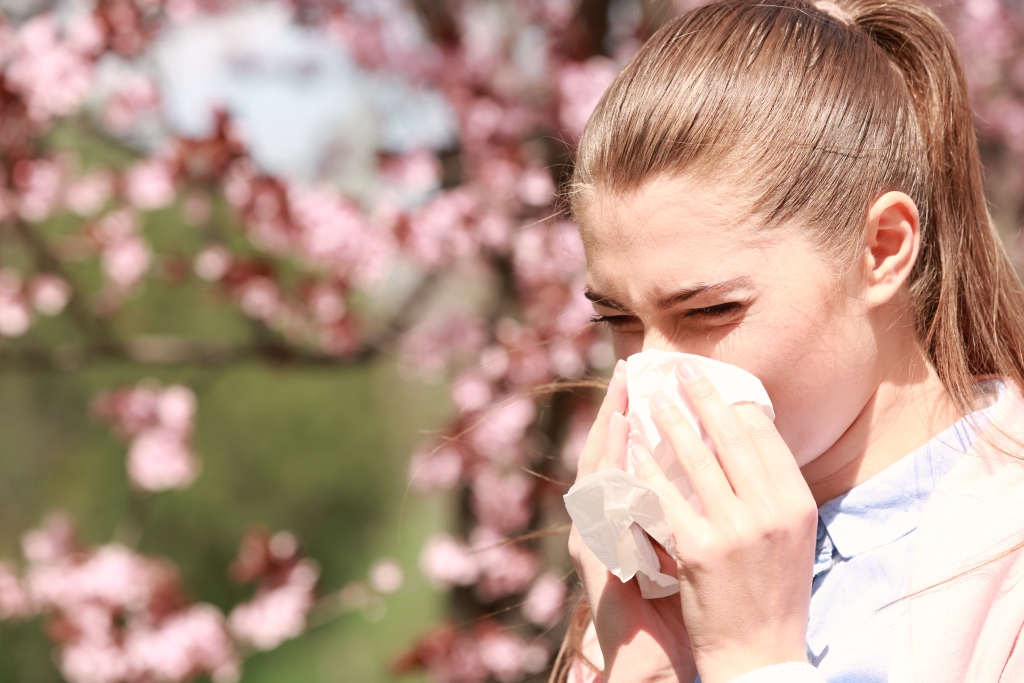For many of us, spring and summer are the most beautiful seasons of the year. Unfortunately, they can also be some of the most challenging ones for those who suffer from seasonal allergies. Thankfully, there are a few tricks you can use to ease your symptoms and make your life a little easier.
Stay Inside During Peak Pollen Hours
One of the most effective ways to reduce your seasonal allergy symptoms is to stay inside during peak pollen hours. This typically happens on days with strong winds, which tend to blow pollen from trees and flowers into the air. By staying indoors between 10 AM and 4 PM, you can avoid much of the pollen that would otherwise irritate your nose and lungs. You can also invest in an air purifier or an air conditioner from an HVAC company, such as Tranesouth, to help filter the air inside your home.
Wash Your Hair Before Bed
You may not realize it, but pollen particles can stick to your hair throughout the day, which means you’re taking it into bed with you every night if you don’t wash it off before going to sleep. To prevent yourself from inhaling pollen particles while you sleep, it’s a good idea to wash your hair before bed. This will help ensure that the majority of the pollen is removed and won’t be blown around your bedroom while you’re trying to get some rest. Additionally, try not to open your windows in the bedroom and make sure to keep the space well-ventilated.
Wear Sunglasses Outdoors
Wearing sunglasses outdoors can be a great way to protect your eyes from allergens. When you’re outside, pollen particles are floating all around in the air and they can easily get into your eyes. Wearing sunglasses will not only help keep the pollen particles out of your eyes but it also helps reduce eye irritation caused by sun exposure.
When it comes to choosing sunglasses for allergies, try to look for frames that cover the entire eye area, including the sides and top of your eyes. Polarized lenses will help reduce glare from sunlight, while also blocking out most UV rays. You should also look for frames with wrap-around styles or larger lenses as they provide more coverage against unwanted particles. Additionally, you may want to look for frames with a ventilated nose piece or adjustable arms to ensure maximum airflow and comfort. Finally, choose sunglasses that are made from lightweight materials for added durability and protection.
Wear an Allergy Mask
If you’re planning on spending a lot of time outdoors during peak pollen hours, it’s a good idea to wear an allergy mask. Allergy masks are designed to keep allergens from entering your nose and mouth by filtering out the particles as you breathe. This can be especially helpful if you have asthma or other respiratory issues, as it can help reduce the severity of any symptoms you may experience. Depending on your needs, there are a variety of masks available, so make sure to find one that best suits your individual needs. Additionally, be sure to replace your mask every few days or after heavy activity such as running or exercising.
If you’re looking for an allergy mask, there are many places to find one. You can find them at most drug stores and pharmacies, as well as in the medical supply section of large grocery stores. Additionally, there are a variety of websites that offer different types of masks ranging from disposable cloth masks to professional-grade respirators. No matter what your needs are, you can easily find an allergy mask online or in-store that fits your budget. Just make sure to read the labels and choose a product that is designed for filtering out allergens.
Take Allergy Medication as Early as You Can
If all else fails, it’s important to take allergy medication as soon as you start experiencing any symptoms. Taking your medication early can help reduce the severity of the symptoms and make them more manageable. Additionally, talk with your doctor about what medications are available and which ones could be most beneficial for you. They may also be able to provide you with additional tips and tricks to help reduce your symptoms.
When choosing an allergy medication, it’s important to speak with a doctor who can recommend the best treatment option for your individual needs. Allergen doctors are widely available, but feel free to speak to your primary care doctor as well. Depending on the severity of your allergies, medications may range from over-the-counter antihistamines and decongestants to more powerful prescription medications. It’s also important to consider any potential side effects that may come with taking the medication, as well as your own personal health history. Additionally, it’s a good idea to discuss any herbal remedies or supplements you may be using and if they could potentially interact with the allergy medication. By thoroughly discussing all of these factors with your doctor, you can ensure that you’re receiving the best advice possible when choosing an allergy medication.
By following these five tips, you can easily ease the symptoms of seasonal allergies and get back to enjoying the beautiful spring and summer months. Don’t forget to ask your doctor for advice if necessary, as they are the best source when it comes to managing your specific type of allergies. With a little bit of effort, you can enjoy the outdoors again in no time!
Got Seasonal Allergies? Try These 5 Tricks to Soothe Them

Sneezing young girl with nose wiper among blooming trees in park